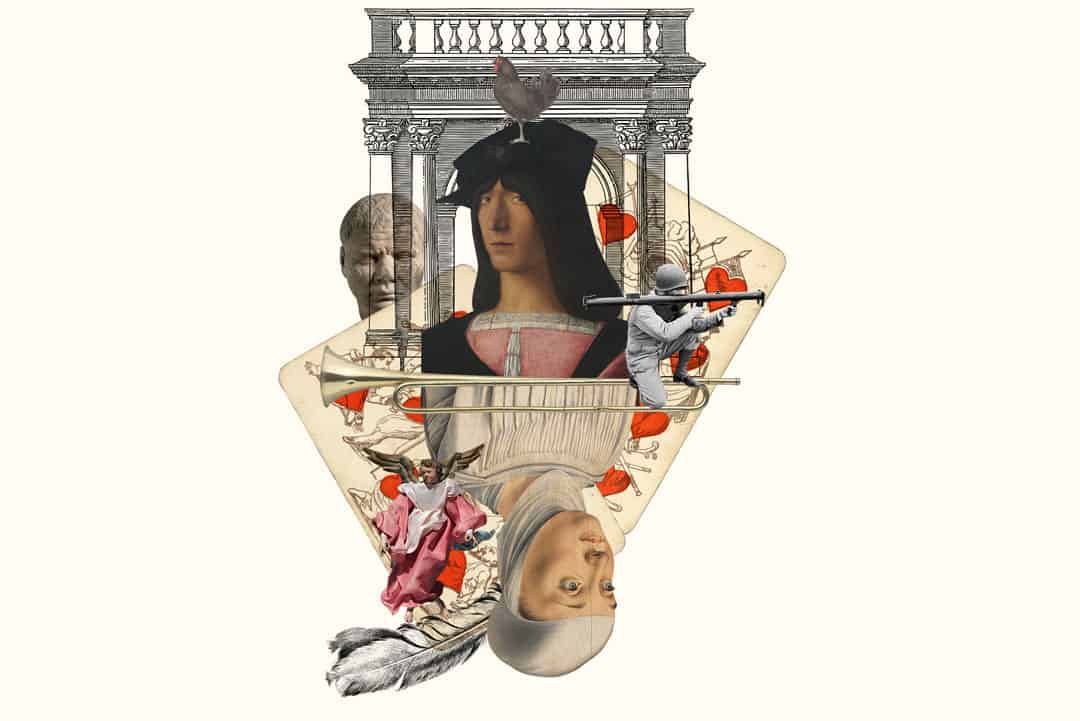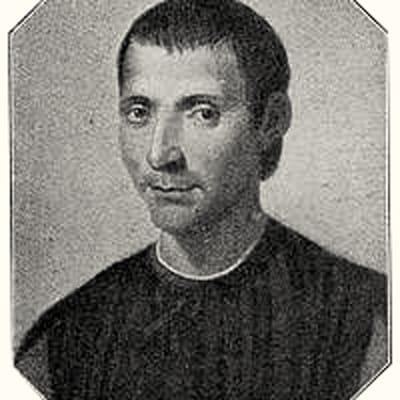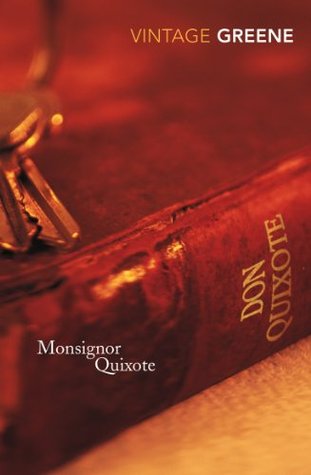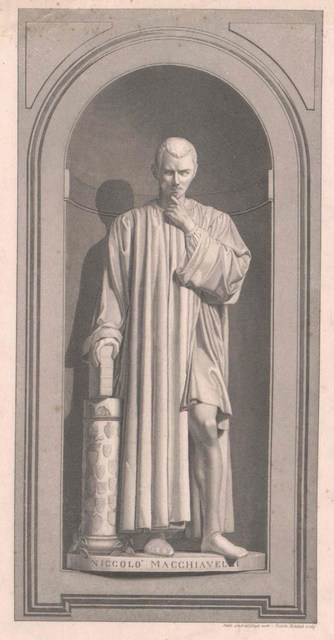…because how one lives is so far distant from how one ought to live, that he who neglects what is done for what ought to be done, sooner effects his ruin than his preservation; for a man who wishes to act entirely up to his professions of virtue soon meets with what destroys him among so much that is evil. Hence it is necessary for a prince wishing to hold his own to know how to do wrong, and to make use of it or not according to necessity.
Niccolo Machiavelli

The Prince
Niccolo Machiavelli

Recommended Scholarly, Annotated Edition: Rebhorn, Wayne A., ed. and trans. The Prince by Niccolo Machiavelli. Norton Critical Edition, Norton, 2019
Machiavelli makes the significant distinction between the ideal and the real, saying that ideals only work in a fantasy in which men are good.
Following an introductory letter to Lorenzo de Medici, Duke of Urbino, Machiavelli describes the various types of princedoms and the many ways in which they can be acquired. Chapters 1-14 are comprised of these discussions about types of principalities, their various strengths and means of political organization. Next, Chapters 15-19 provide the core of Machiavelli’s advice to princes: the paramount importance of maintaining one’s power position and of protecting the territory one has gained or inherited: Chapter 15, on reputation, seeming virtuous vs. being virtuous, it is better to seem virtuous; Chapter 16, on generosity vs. stinginess, it is better to be stingy; Chapter 17, on cruelty vs. mercy, it is better to be feared than loved; Chapter 18, on when keeping one’s word vs. not keeping one’s word, one needs to seem as if one keeps one’s word; and Chapter 19, on when avoiding hatred, it is prudent not to take men’s property or women, thereby avoiding their hatred and further protecting oneself from insurrection. The quotations above help summarize the advice given in these five central chapters, 15-19.
Machiavelli makes the significant distinction between the ideal and the real, saying that ideals only work in a fantasy in which men are good. Consequently, since people are by nature going to behave in ways that are ethically bad, whenever necessary the prince needs to be ready to act bad, as well, all the while maintaining the reputation of seeming not to be a tyrant or a dictator. In this way, the prince is to be feared but not hated. Machiavelli asserts that power is acquired and maintained according to two basic principles: that of Fortune and virtù. Whereas the Wheel of Fortune, or Lady Fortune, had been part of the discussion of political theory in the past, one of Machiavelli’s original contributions to the discussion is his concept of virtù. Machiavelli’s definition of virtù is not synonymous with its English cognate, “virtue,” and sometimes can refer to behavior that is the opposite of virtuousness. Machiavelli’s virtù is gendered masculine (vir being the Latin word for man) and is best translated through the following concepts: agency, ability, pragmatism, force, expedience, and flexibility. These qualities, along with the paramount quality of maintaining one’s powerful reputation, are expounded upon and exemplified repeatedly in the work.
The third and final section of the work, Chapters 20-26, focuses on the prudence of the prince, including the use of fortresses, gaining honors, staffing in the inner circle, and avoiding flattery and other errors committed by past Italian princes. In the penultimate chapter, Machiavelli asserts that will of the prince must dominate chance or luck, and the last chapter involves a call for central power in Italy to avoid rule by barbarians. In this final chapter, Machiavelli compares the condition of his contemporary Italians to that of the ancient Hebrews. Moses was sent by God to lead them out of bondage, but they also needed to act for themselves in order to take responsibility for their survival. Both the ancient Hebrews and the contemporary Italians need to act on their own virtù.
Why This Text is Transformative?
Students consider the role of virtue and religion in politics; about distinctions between seeming and being; about the place of their own ideals when faced with the disappointments of the real.
Considering the reputation of the author of The Prince allows students to see the value of interpreting works in historical and generic context. Machiavelli and his works demonstrate that reception is as important as the content of the work itself. The term Machiavellian typically evokes the idea of “The ends justify the means,” with the implication that Machiavelli himself must have supported absolutism or tyranny. The Prince upset contemporary readers because it is the first printed work that separated civic virtue from morality. As a result, the author’s name became associated with despotism and violence, and the menacing figure of a Machiavel became a common figure in drama at the time. In contrast, a work written by Machiavelli just a few years later, The Discourses, has been hailed for centuries as one of the foundational texts for representative government instead of princedoms or monarchies. Machiavelli himself had been a victim of political torture before he wrote The Prince. He was passionately against tyranny in favor of representative rule. Our current use of the word Machiavellian represents a particular reception of one of his works rather than the political affinities of the writer himself.
Also, for twenty-first-century college students, many of the political topics about which Machiavelli wrote are more pressing than ever due to advancements in technology, communication, and globalization. Students consider the role of virtue and religion in politics; about distinctions between seeming and being; about the place of their own ideals when faced with the disappointments of the real. Many students believe a leader should be virtuous, generous, merciful, honest, and faithful. Other students will assert that these ideals are antiquated, unrealistic, even counterproductive. Reading The Prince (and, perhaps, The Discourses) in its historical and generic contexts can provide students with a lens through which to see power structures of early modern Europe, as well as the categories of thought and critique through which to analyze power structures today.
A Focused Selection
Study Questions

When reading The Prince, it is helpful to be aware of the classical [ancient Greek and Roman] texts with which the work engages. For example, many of the central arguments in The Prince are Machiavelli’s response to an ancient Latin work, Cicero’s De Officiis (Of Duties) (44 B.C.E.), which for Renaissance intellectuals and educators was an instructive text on effective public life and civic virtues. In this work Cicero expounds on the moral virtues necessary for a ruler. He presents the behavioral ideals for those who hold public office (in response to what he saw as the harmful behavior of the recent dictator, Julius Caesar). Cicero’s focus is on natural law, rights of citizens, justice, and the prevention of wrong. Machiavelli critiques Cicero’s focus on ideal, and instead, Machiavelli insists that political philosophy must focus on the real ways that humans act. The Humanists during the Renaissance tried to place the valuable writings of pagan philosophers such as Cicero into a Christian framework. While many Renaissance writers Christianized the tenets of the ancients, in The Prince Machiavelli not only suggests that the sincere practice of Christianity might be harmful to the preservation of the princedom, but he also repeatedly refutes Cicero’s idea that a civic leader must be virtuous. Pairing Of Duties with The Prince allows students to understand the latter work as a response to one of its most significant predecessors.
Building Bridges
A Recommended Pairing

A wonderful short novel by Graham Greene, Monseigneur Quixote, recasts Cervantes’ magnum opus in a way that captures much of the humor and pathos in a more modern context, as the adventures of a Roman Catholic priest and a communist mayor taking to the road together in Spain during the Franco years. The richly imagined characters and their conversations make it clear that the issues that drive Don Quixote’s idealistic quest are not raised only in books of chivalry. How do we live with a commitment to the ideals of a religious faith or a political ideology which, though noble, may not fit easily with and may have unfortunate consequences in the unforgiving world in which we find ourselves? What difference does friendship make in our lives?
Supplemental Resources

Don Quixote and the Windmills, 1945 - Salvador Dali - WikiArt.org
Haddad, Khristina H. and Claudia Mesa Higuera, “Seeing What Is Said: Teaching Niccolo Machiavelli’s The Prince through Its Images.” 2021
Kasper, Eric T, and Troy A. Kozma. Machiavelli Goes to the Movies: Understanding the Prince Through Television and Film. Lanham: Lexington Books, 2015.
Miller, Alan. “Teaching Machiavelli, or How I Learned to Love The Prince.” The English Journal, March 2021, Vol. 99, No. 4, pp. 72-76.
Phillips, Tim. Niccolo Machiavelli’s the Prince: A 52 Brilliant Ideas Interpretation. – Includes Index. Oxford, UK: Infinite Ideas, 2008.
Pocock, J. G. A., and Richard Whatmore. The Machiavellian Moment: Florentine Political Thought and the Atlantic Republican Tradition, 2016. (Book is available on JSTOR)
Scott, John T. and Robert Zaretsky, Why Machiavelli Still Matters.” The New York Times, Op-Ed., Dec. 9, 2013.
Viroli, Maurizio. Redeeming “The Prince”: The Meaning of Machiavelli’s Masterpiece, 2014.
Gonchar, Michael. “Text to Text: ‘The Prince’ and ‘Why Machiavelli Still Matters.’” The New York Times. The Learning Network. March 11, 2014
Skinner, Quentin. “A Very Short Introduction to Machiavelli.” Talks at Google
“On Machiavelli: Advice from Italy’s (In)famous Military Strategist.” McCombs School of Business Lecture, 2017
Text Mapping
Discipline Mapping
Political Science/Government
History
Philosophy & Religion
Page Contributor



